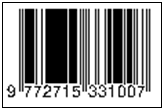Physical Medicine and Rehabilitation Management in Pediatric Patient with Postural (Positional) Clubfoot: A Case Report
DOI:
https://doi.org/10.35790/msj.v5i2.46886Abstract
Abstract: Clubfoot, talipes equinovarus, is a common term used to describe several kinds of ankle or foot deformities present at birth. This condition is one of the most treatable birth defects, often leading to normal or near-normal athletic activities later in life. We reported a patient with positional clubfoot treated with serial casting, passive manipulation, and stimulation. Male, 6 days old, lived in Sonder, with a chief complaint of right foot that bent inward since birth. Patient was consulted by pediatrician to physiatrist since the birth day. The bent inward foot was not accompanied by swelling and redness, and patient was seen calm when the foot being moved. Patient was treated by physiatrist with passive manipulation, four times weekly with serial casting, and everyday stimulation for feet. During treatment session, patient’s deformity was getting improved. After treatment, the deformity was corrected and patient’s foot was in normal position without any complication. The aim of medical rehabilitation of clubfoot was to reduce the deformity with the success criteria that foot could be functional, free of pain, good mobility, and did not require correction shoes, therefore, the patient could carry out normal activities after growing up. In conclusion, to produce the maximum correction results, good cooperation is required with the patient’s parents. Even though correction is optimal and done as soon as possible, if bone growth has not stopped, the clubfoot problem can reappear. The first element of management is correction of the cavus deformity by positioning the forefoot in proper alignment with the hindfoot.
Keywords: postural clubfoot; physical medicine and rehabilitation; children; passive manipulation; serial casting; everyday stimulation for feet
References
Staheli LT. Foot (Chapter 9). In: Fundamentals of Pediatric Orthopedics (5th ed). Philadelphia: Wolters Kluwer; 2016.
Wahyuni LK, Soebadi RD, Wulan SM. Deformitas kaki dan pergelangan kaki. In: Wahyui LK, Tulaar ABM. Ilmu Kedokteran Fisik dan Rehabilitasi pada Anak (Cetakan 1). Jakarta: PERDOSRI; 2014. p. 562-96.
Brunner R, Freuler F, Hasler C, Jundt G. Pediatric Orthopedics in Practice. Heidelberg: Springer – Verlag; 2007. p. 374- 88.
Schoenecker P, Rich MM, Gordon JE. The lower extremity. In: Lovell and Winter’s. Pediatric Orthopaedics Vol. 1 (7th ed) Vol 1. Philadelphia: Lippincott Wiliiams; 2014. p. 1261-341.
Murphy KP, Wuenderlich CA, Pico EL. Orthopedics and musculoskeletal conditions (Chapter 10). In: Alexander MA, Matthews DJ, editors. Pediatric Rehabilitation Principle and Practice (5th ed). New York: Demos Medical; 2015.
Visser JD. Foot. In: Visser JD, editor. Pediatric Orthopedics Symptoms, Differential Diagnosis, Supplementary Assessment and Treatment. Switzerland: Springer; 2017. p. 261-98.
Abdelgaward A, Naga O. Foot. In: Abdelgaward A, Naga O, editors. Pediatric Orthopedics A Handbook for Primary Care Physicians. Springer; El Paso; 2014: 157-198.
Brown DP, Freeman ED. In: Cuccurullo SJ, editor. Physical Medicine and Rehabilitation Board Review (3rd ed). New York: Demos Medical; 2015. p. 149- 340.
Herring JA. Congenital talipes equinovarus. In: Tachdjian's Pediatric Orthopaedics from The Texas Scottish Rite Hospital for Children (5th ed). Elsevier Saunders: 2013. p. 785-809.
Thomas J, Barry M. Congenital talipes equinovarus (Clubfoot). In: Paediatric Orthopaedics in Clinical Practice (3rd ed). Elsevier Saunders; 2016. p. 177-87.
Besselaar A, Sakkers R, Schuppers H, Witbreuk M, Zeegers E, Visser J, et al. Guideline on the diagnosis and treatment of primary idiopathic clubfoot. Acta Orthopaedica Journal. 2017;88(3):305-9.
Schoenecker P, Rich MM, Gordon JE. The lower extremity. In: Lovell and Winter’s. Pediatric Orthopaedics Vol 1 (7th ed). Philadelphia: Lippincott Williams; 2014. p. 1261-341.
Rani M, Kumari P. Congenital clubfoot: a comprehensive review. Ortho & Rheum Open Access Journal. 2017;8(1):1-5.
Mejabi J, Esan O, Adegbehingbe O, Orimolade E, Asuquo J, Badmus HD, et al. The Pirani scoring system is effective in assessing severity and monitoring treatment of clubfoot in children. British Journal of Medicine & Medical Research. 2016;17(4):1-9. Doi: 10.9734/BJMMR/2016/27439
Staheli L, Ponseti I, Morcuende J.A, Pirani S. In: Kaki Pengkor: Penanganan dengan Metode Ponseti (3rd ed). Global Help. 2010. Available from: https://global-help.org/products/kaki-pengkor-penanganan- dengan-metode-ponseti/
Jeans KA, Karol LA, Erdman AL. Outcomes after nonoperative treatment of idiopathic clubfoot. The American Academy of Pediatrics Journal. 2019;41(4):40-5. Available from: https://doi.org/ 10.1542/gr.41-4-40.
Digge V, Desai J, Das S. Expanded age indication for Ponseti method for correction of congenital idiopathic talipes equinovarus: a systematic review. J Foot Ankle Surg. 2018;57(1):155-8. Doi: 10.1053/j.jfas.2017.08.015.
Rani M, Kumari P. Congenital clubfoot: a comprehensive review. Orthopedics and Rheumatology Open Acces Journal. 2017;8(1):001-005. Doi: 10.19080/OROAJ.2017.08.555728.
Downloads
Published
How to Cite
Issue
Section
License
Copyright (c) 2023 Gloria Rondonuwu, Joudy Gessal, Patricia Kalangi

This work is licensed under a Creative Commons Attribution-NonCommercial 4.0 International License.
COPYRIGHT
Authors who publish with this journal agree to the following terms:
Authors hold their copyright and grant this journal the privilege of first publication, with the work simultaneously licensed under a Creative Commons Attribution License that permits others to impart the work with an acknowledgment of the work's origin and initial publication by this journal.
Authors can enter into separate or additional contractual arrangements for the non-exclusive distribution of the journal's published version of the work (for example, post it to an institutional repository or publish it in a book), with an acknowledgment of its underlying publication in this journal.
Authors are permitted and encouraged to post their work online (for example, in institutional repositories or on their website) as it can lead to productive exchanges, as well as earlier and greater citation of the published work (See The Effect of Open Access).










